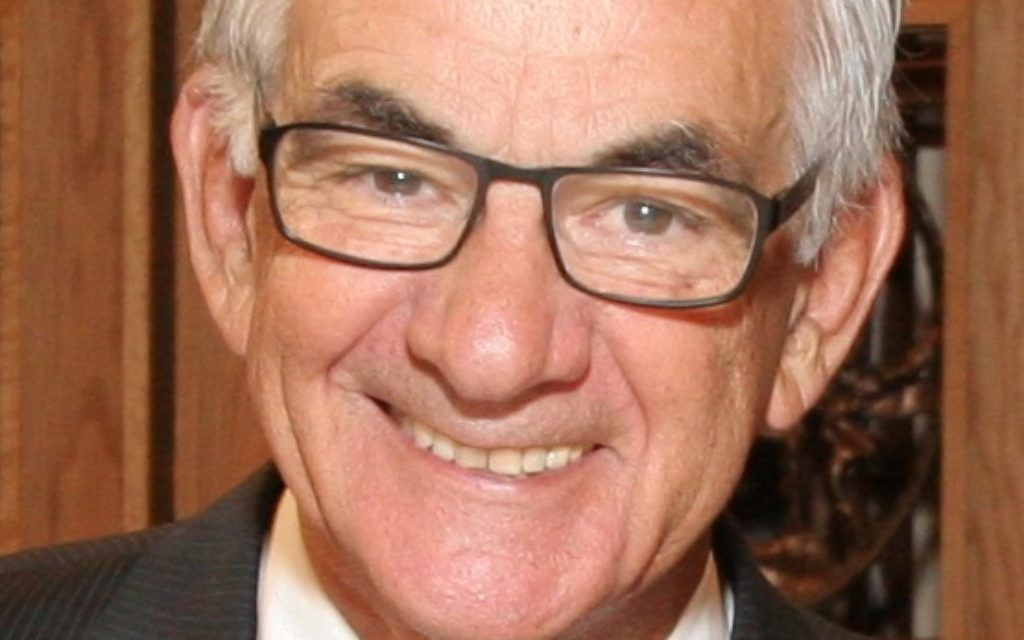Catholics and Jews Join Quest to Fix the World
Archdiocese and American Jewish Committee highlight need for civil dialogues to understand one another.
The concept of tikkun olam (repairing the world) is familiar to Jewish people, but Atlanta’s Catholic archbishop pointed out two challenges in undertaking that task.
First, Archbishop Wilton Gregory said, some people don’t recognize that the world is broken, so they resist any changes to make it better.
More serious, though, is that “some people think change is the brokenness” and thus want to go backward and undo progress.
Get The AJT Newsletter by email and never miss our top stories Free Sign Up
The archbishop presented that conflict Thursday, Oct. 26, at “Repairing the World: Understanding Our Shared Responsibility,” the third annual commemoration of the Catholic Church’s 1965 Nostra Aetate declaration held by the archdiocese and American Jewish Committee at The Temple. That 1965 statement apologized for church anti-Semitism and cleared the way for cooperation and understanding between the two oldest monotheistic religions.
Repairing the world together is “a theme we needed to explore,” said Paula Gwynn Grant, the communications director for the archdiocese.
The global theme drew a wider range of religions, including representatives of Muslims and evangelical Protestants, meeting what AJC representative Steve Berman cited as three urgent needs in America today: civility, morality and tolerance.
Anti-Semitism in America was thought to be a part of the past, Berman said, but incidents rose by a third in 2016, then spiked by 86 percent in the first quarter of this year, according to statistics collected by the Anti-Defamation League.
“Unfortunately, our job is not done,” he said. People must work together to combat hate because when one group is targeted by prejudice, everyone suffers.
“We want and cherish civility, and our diversity makes us stronger,” Berman said.
Race and ethnicity joined religion as topics of discussion.
Carmen Coya-van Duijn, a Catholic Latina born in Brooklyn and married to a man from the Netherlands, said her children don’t want to speak Spanish because it makes them feel ostracized. And members of the church’s Dominican order, in which she is a lay leader, didn’t want native Spanish speakers to learn church teachings in Spanish, even though the order itself was founded by a Spaniard.
She said that coming through immigration after an international flight into New York, two agents (neither of them white) treated her, the New York native, as a foreigner, while her husband with the Dutch accent breezed through.
“Let’s have a courageous conversation, and don’t leave it here,” she told attendees. “Take it out in the world.”
Alan Cross, a Southern Baptist minister who works with immigrants in the Southeast, said too many people fail to understand sacrificial love toward their neighbors, and they tend to push their own way of life onto others. That attitude toward others comes across as racism.
“Is there not much more that unites us than divides us?” said Temple Emanu-El Rabbi Emeritus Scott Colbert, who explained that “neighbor” should be a moral concept, not a geographical term.
He said that regardless of whether people in trouble are Muslims, Jews, Christians, blacks, Hispanics, Asians, immigrants or the children of immigrants, “their problems are our problems.”
He acknowledged the lack of easy solutions to the many complex issues dividing people, but, echoing Pirke Avot, he said that beginning to seek answers is a holy duty. Like Rabbi Abraham Joshua Heschel marching with Marin Luther King Jr., “what we are doing is sacred.”
He emphasized the prophetic role of speaking the truth to power and cited the shared Abrahamic heritage of all the faiths represented in the discussion.
Gregory also called for looking toward the example of Abraham but took an even more expansive view of the repair challenge, calling the entire planet a shared home for people of all faiths, who are all still looking for the promised land.
He acknowledged that the hundreds of people in the room with him aren’t the ones who need convincing. “We’re preaching to the choir,” Gregory said of the crowd at the interfaith evening, “but even the choir needs practice.”





comments